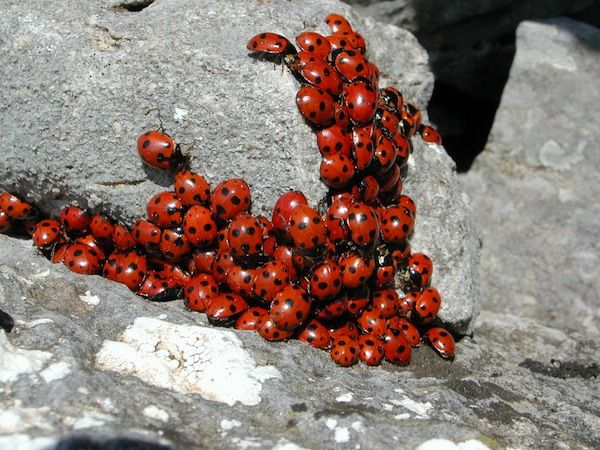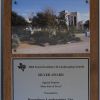Beneficial Insects: Don’t kill these garden bugs!
March 30, 2015 | By webadmin
Gardening here in the Dallas area can sometimes be tough. We spend a lot of time working to build up healthy soil, choosing plants that are best suited to the climate and managing irrigation water smartly. The best medicine is always prevention, so by doing all of these things proactively, we can better keep pests and diseases at bay without the use of chemicals.
But, we’re never ones to turn down a helping hand! When you can keep a landscape in a healthy balance, you’ll often benefit from beneficial predators carrying some of the load in your garden.

Ladybugs are a gardener's best friend!
How do you know if your landscape is balanced?
One way you can tell if your landscape is balanced and healthy is by the presence of beneficial predators. When you see critters like ladybugs, spiders and assassin bugs show up in your garden, that means they’re there to take care of certain pests issues so you don’t have to. Beneficial predator insects help control infestations of aphids, slugs, mealybugs and more. In addition to insects you’ll also notice more small lizards and birds when your landscape is balanced and chemical free.
It’s a bug eat bug world!
An organically maintained landscape helps you encourage the good predators. Most chemical fungicides, insect sprays and even fertilizers, can hurt beneficial insects along with unwanted pests. By choosing an organically maintained landscape you’ll encourage the beneficial predators to take up residence in your garden.
Here are two examples of important, and common, beneficial predators you’ll want hanging around your landscape!
Ladybug larva devour aphids, mites and scale. The ladybug lays eggs that hatch into small, reptile-looking bugs that feed on soft bodied insects. This is why it’s not only good luck to find a ladybug in the garden, it’s necessary!
Beneficial predators even live underground: Beneficial nematodes are tiny creatures that live in the soil. They feed on soft bodied insects that live or breed in the soil. These microscopic, worm-like creatures, love to make a meal of grub worms, fleas, and fire ants. Keeping your soil healthy will ensure a good population of beneficial nematodes!
Here at Roundtree Landscaping, we know that many of our customers prefer to use the least toxic methods around their home. We have a well-organized organic maintenance plan available should you choose to have a professional care for your needs.
